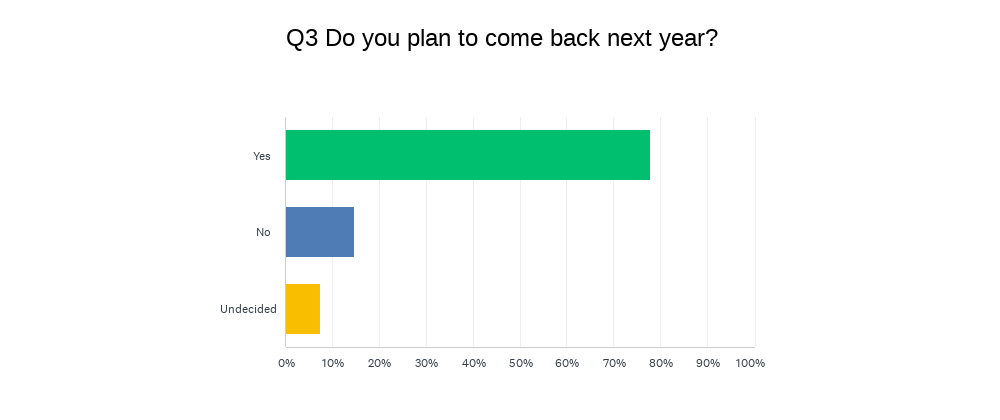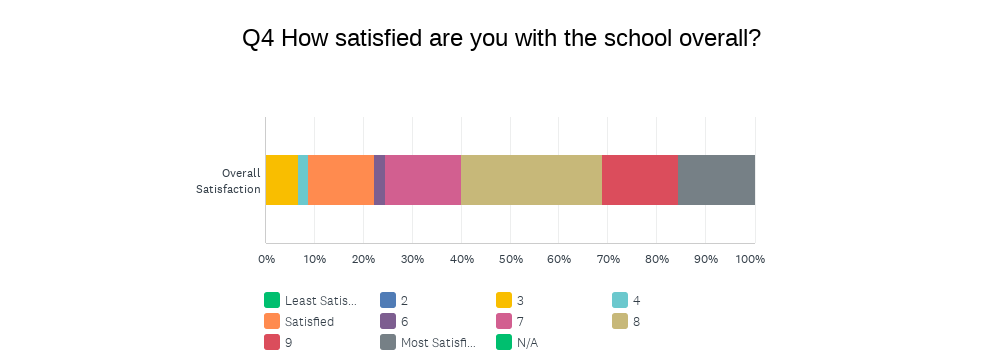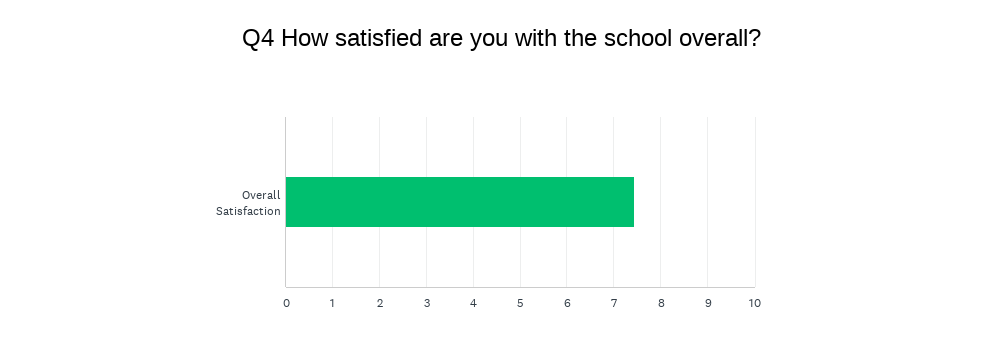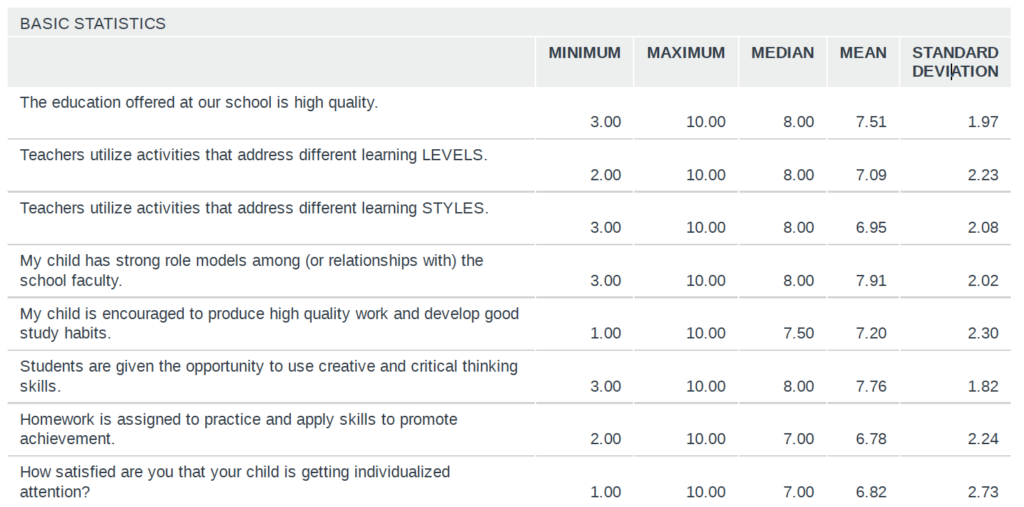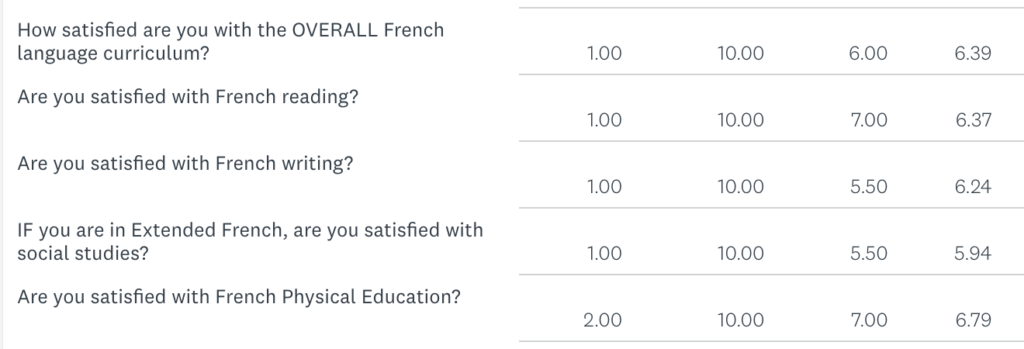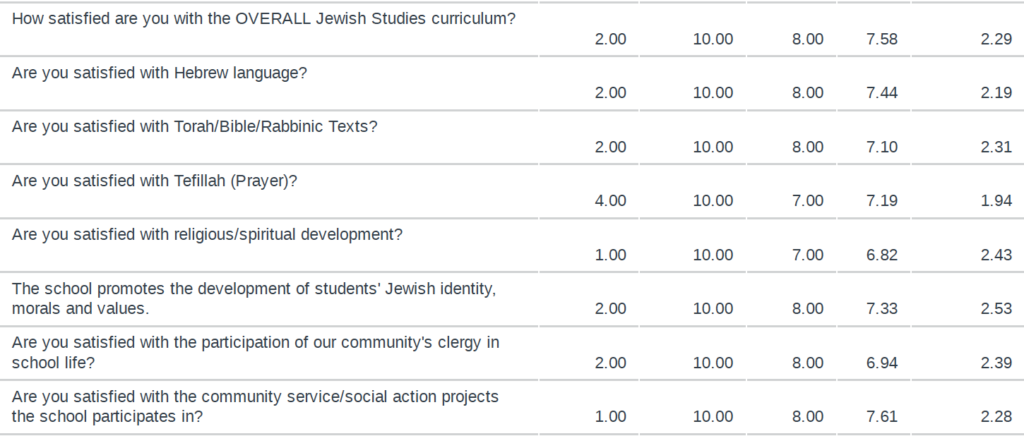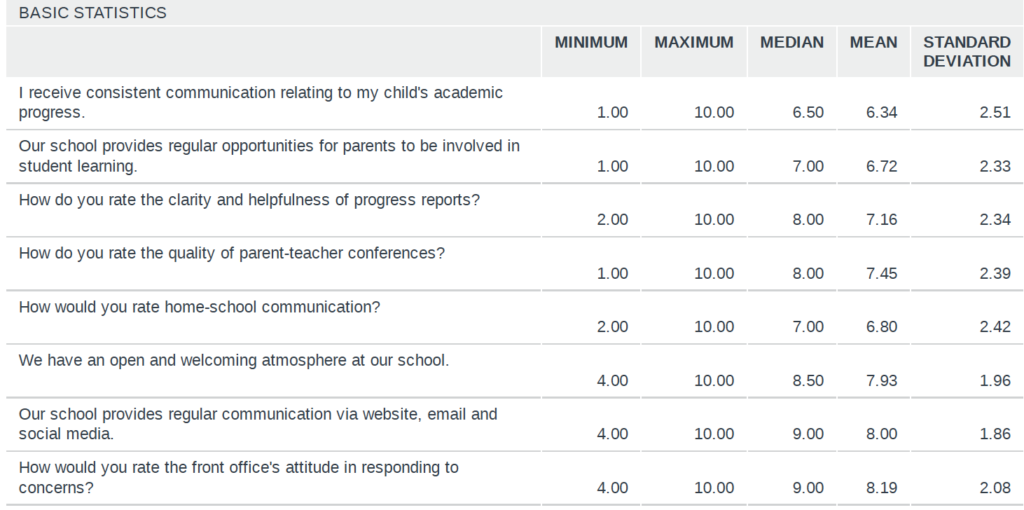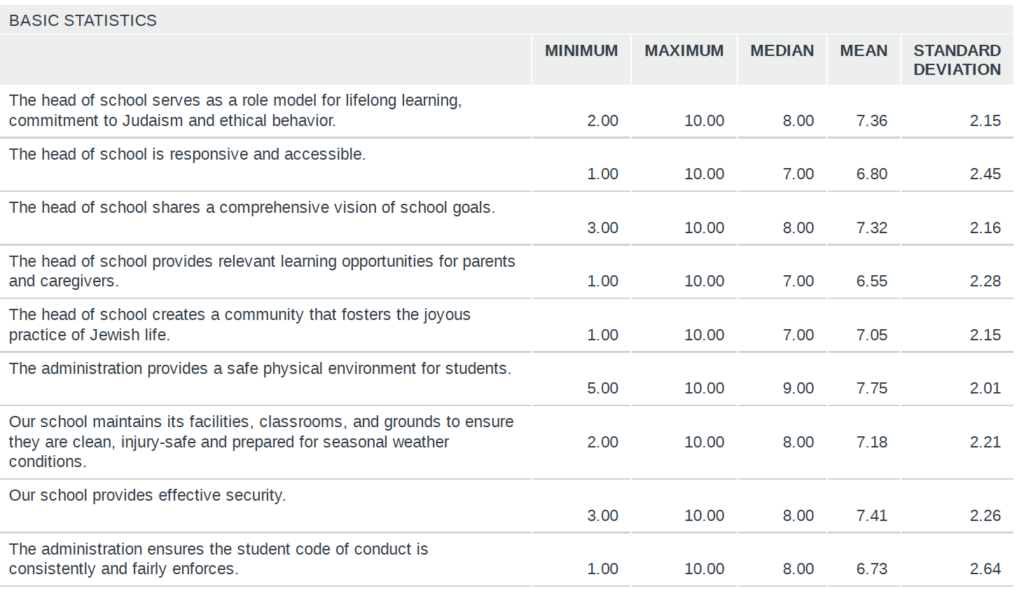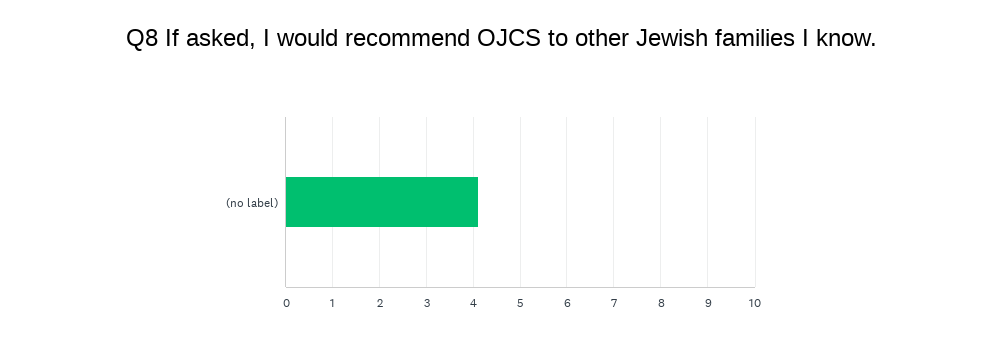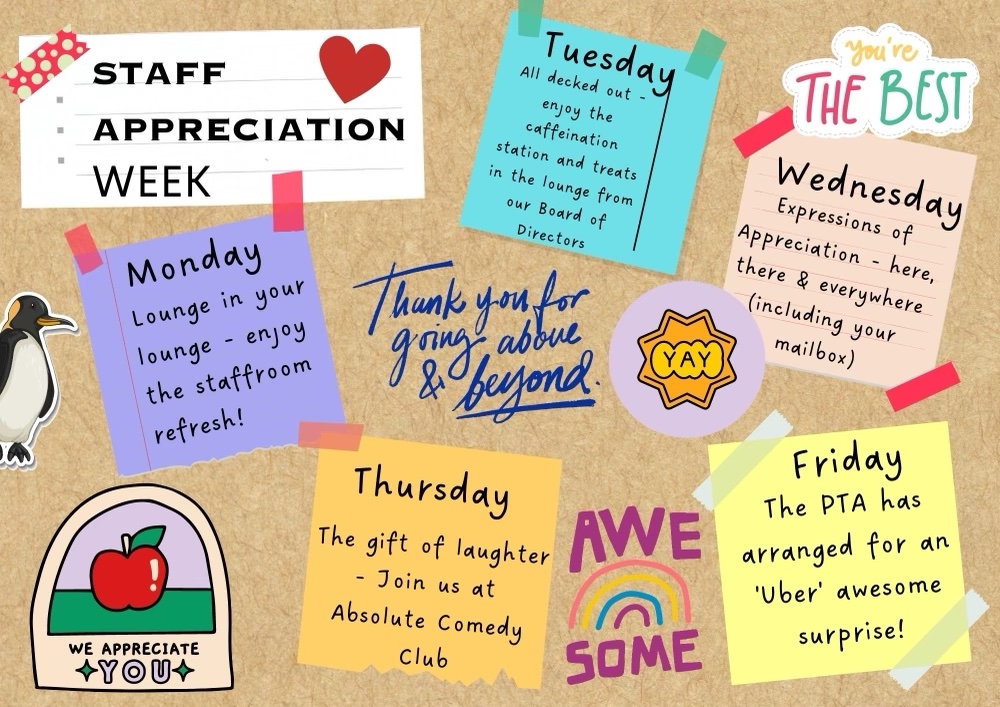Happy Friday!
Here we are on literally the last day of school – for teachers – and before we head into Canada Day Weekend and the true start of summer, it is my sincere joy and pleasure to be able to share a picture of the amazing human beings who will be teaching our children and leading our school into the 2023-2024 school year at the Ottawa Jewish Community School.
The quickest of words before I unveil the list…
…the first is to remind you to revisit my last three blog posts where I shared updates about next year’s renovation, our change from trimester to semester, and important ideas and initiatives that will anchor next year.
……the second is to share with you the overarching idea that has animated our two days of what we call “Pre-Pre-Planning” – these two PD days that essentially mark the beginning of the 2023-2024 school year because they focus our teachers on how to set themselves up for a successful summer in service of a successful start to school. We are focusing our energy on “Connecting the Dots” – how will we do a better job connecting teachers to each other, teachers to administrators, students to each other, students to teachers, teachers to parents, etc. One of our North Stars is that “We Learn Better Together” and whether that constitutes academic learning, behavioural outcomes, or Jewish experiences; ensuring we have the structures, systems, processes, protocols, time, relationships and attitude to leverage the excellence, enthusiasm and expertise in our school will be a big part of making next year an amazing year for our students, teachers, families and community.
……the third is to please pay attention to the updated calendar! We have done a much better job populating our calendar with events much earlier and with a change to semester comes new events like our “Goal-Setting” meetings or changes to the timing of when you might expect “Parent-Teacher Conferences”. The fact that so many Jewish Holidays will fall on weekends next year allows for more flexibility and creativity including the addition of a third PD Day. In short, please be sure you not only have the “Year-at-a-Glance” handy, but that you subscribe to the school’s Google calendar off the website. That’s where all new and updated information will land.
…the fourth is a gentle reminder that the assignments below are tentative as they always are. Things sometimes can and do change, although we believe this should be much less of a factor this summer, but sometimes we do have to make adjustments. If an update is required, of course, it will be sent either directly to the impacted grades or in a blog post.
OK, I think I have given a lengthy enough preamble. Let’s get excited about this gifted and loving group of teachers and administrators, who will partner with our parents in the sacred work of educating our children. I know I am!
The 2023-2024 OJCS Faculty & Staff
Lower School General Studies Faculty
- Junior Kindergarten: Susan Wollock & (EA)
- Kindergarten: Andréa Black, French Teacher (French) & (EAs) [TWO Classes]
- Grade One: Julie Bennett & Efi Mouchou (French) [TWO Classes]
- Grade Two: Ann-Lynn Rapoport & Efi Mouchou (French) [TWO Classes]
- Grade Three: Lianna Krantzberg / General Studies Teacher & Aaron Polowin (French) [TWO Classes]
- Grade Four: Faye Mellenthin, Chelsea Cleveland (Math), Aaron Polowin (Core) & Dr. Sylvie Raymond (Extended)
- Grade Five: Charles Watters, French Teacher (Core) & Dr. Sylvie Raymond (Extended) [TWO Classes]
Lower School Jewish Studies Faculty
- Kitah JK: Susan Wollock
- Kitah Gan: Jaqui Gesund Kattan [TWO Classes]
- Kitah Alef: Ada Aizenberg [TWO Classes]
- Kitah Bet: Dana Doron [TWO Classes]
- Kitah Gimmel: Sigal Baray [TWO Classes]
- Kitah Dalet: Orya Klein
- Kitah Hay: Marina Riklin [TWO Classes]
Middle School Faculty
- Science: Josh Ray
- Mathematics: Math Teacher (Grades 6 & 7) & Josh Ray (Grade 8)
- Language Arts: Jess Mender
- Social Studies: Michael Washerstein
- Extended French: Wanda Canaan
- Core French: French Teacher (Grade 6) & Dr. Sylvie Raymond (Grades 7 & 8)
- Hebrew: Jaqui Gesund Kattan (Hebrew Alef), Liat Levy (Hebrew Bet for Grade 6) & Ruthie Lebovich (Hebrew Bet for 7 & 8)
- Jewish Studies: Mike Washerstein
- Rabbinics: Corinne Baray
Specialists
- Art/Drama/Music/Dance: Andy Sued
- French Language PE: Stéphane Cinanni & Aaron Polowin
- Library: Brigitte Ruel
Leads
- Makerspace: Josh Ray
- Mitzvah Trips: Michael Washerstein
- Student Life: Lianna Krantzberg
Department of Special Education
- Keren Gordon, Principal
- Sharon Reichstein, Director of Special Education
- Ashley Beswick, Student Support Coordinator
- Melissa Thompson, Grades 4-8 Resource Teacher / Teaching & Learning Coordinator
- Faye Mellenthin, Grades 5-8 Resource Teacher
- Chelsea Cleveland, Grades 1-8 Math Resource Teacher
- Reading Teacher, Reading Resource Teacher
- Orya Klein, Jewish Studies Resource Teacher
- Corinne Baray, Jewish Studies Resource Teacher
- French Teacher, French Resource Teacher
- Efi Mouchou, French Resource Teacher
Administration
- Josh Max – Director of Technology
- Ellie Kamil – Executive Assistant to the Head of School
- Staci Zemlak-Kenter – Director of Development
- Emily Jiang – Chief Accountant
- Jennifer Greenberg – Director of Recruitment
- Keren Gordon – Principal
- Dr. Jon Mitzmacher – Head of School
You will see some new names and some new categories…
…the most important thing you should notice, especially in light of recent conversations, is the simplification of teaching portfolios in the service of the expansion of resource teaching. Not everyone housed in “Resource” is allocated to it half or full-time, but if they are listed there, it is because a meaningful allocation of time, with a specification, has been assigned to an excellent teacher. This was the number one issue flagged by parents and by teachers and we are thrilled to have addressed it so significantly.
…we are so excited to welcome Melissa Thompson back from maternity leave! She technically joined us this week and we can already feel her energy and her presence as we prepare for an amazing year next year.
…yes, I am aware that Staci Zemlak-Kenter is moving with her family to New Jersey, but as we continue our search process – and Staci begins her search process – the status remains quo as Staci works remotely to ensure our critical development work continues unimpeded.
Now let’s segue into the introductions…

Please welcome Jaqui Gesund Kattan to OJCS…and to Canada! Morah Jaqui comes to us from Mexico City where she has been a Hebrew and Humanities Teacher at the Bet Hayladim Middle School. She has a Montessori background and a wealth of experience working in Jewish Youth Movements in Mexico. She is excited to be moving to our OJCS and Ottawa Jewish Community and she brings a ton of energy and enthusiasm to our Jewish Studies Faculty.
Andy Sued is thrilled to join our Faculty with a diverse portfolio. She will be creating and leading our Arts/Drama/Music/Dance programs, as she comes to us by way of Ecuador, Argentina, Israel and Camp Ramah of the Berkshires. Andy is an artist with a wealth of experience teaching art, drama, singing and Israeli folk-dancing to students of all ages and we welcome her and her family to Ottawa this summer. Andy is ruach personified and we can’t wait to see how she infuses and integrates the arts with her rich Jewish Studies background and love for Israel.
Orya Klein is moving from Israel to Ottawa with her family after a successful teaching career in Israel where she taught both Mathematics and Jewish Studies in both Middle and High School. Morah Orya [that’s catchy!] is beloved by her colleagues and they have assured us what a gift we are getting with her natural talents for relationship-building, kindness, creativity and collaboration.
We are thrilled to introduce Charles Watters, our new Grade 5 General Studies teacher, who began his career as a Naval Officer with the Canadian Armed Forces, and as a second career then became a teacher, who always prioritises cultivating strong relationships. He has managed to collect all kinds of varying teaching experiences thus far, including working in a Forest School setting, as well as an alternative independent school. We look forward to making formal introductions at the end of summer.

If you see an open position, it truly means that we have not yet signed a contract with a finalist (not that we are simply beginning to search) as we have been blessed this season with excellent candidates (as you can see above). I will provide an updated and final faculty roster later on during the summer.
Please note that I intend to take a pause from weekly blogging as we head into summer. Of course, should the spirit move me, or an issue arises that warrants it, I will blog intermittently, until resuming my weekly routine a week or so before our teachers return for Pre-Planning Week 2023.
Happy summer!



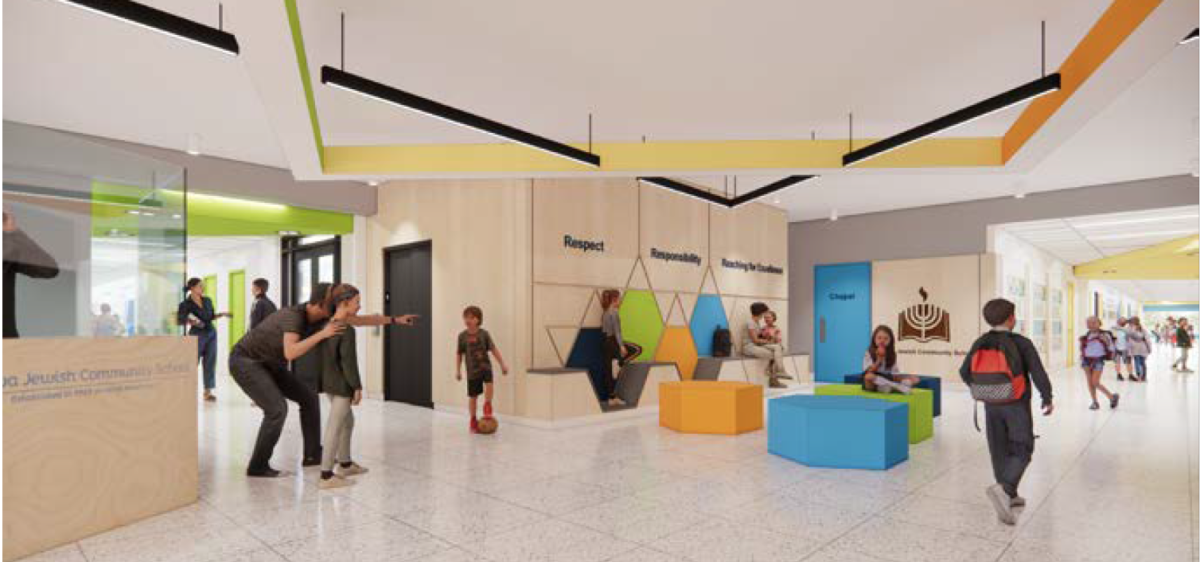
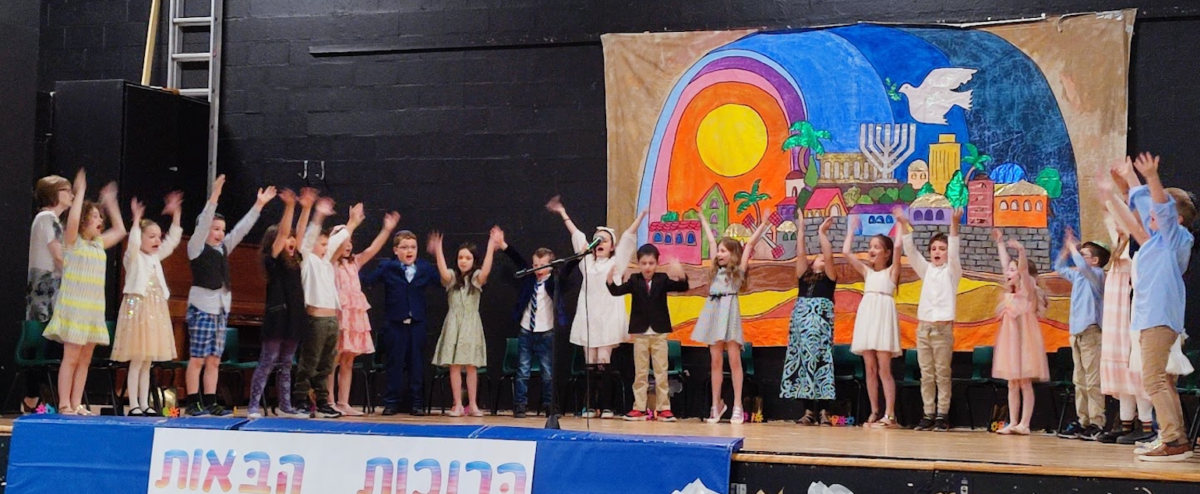
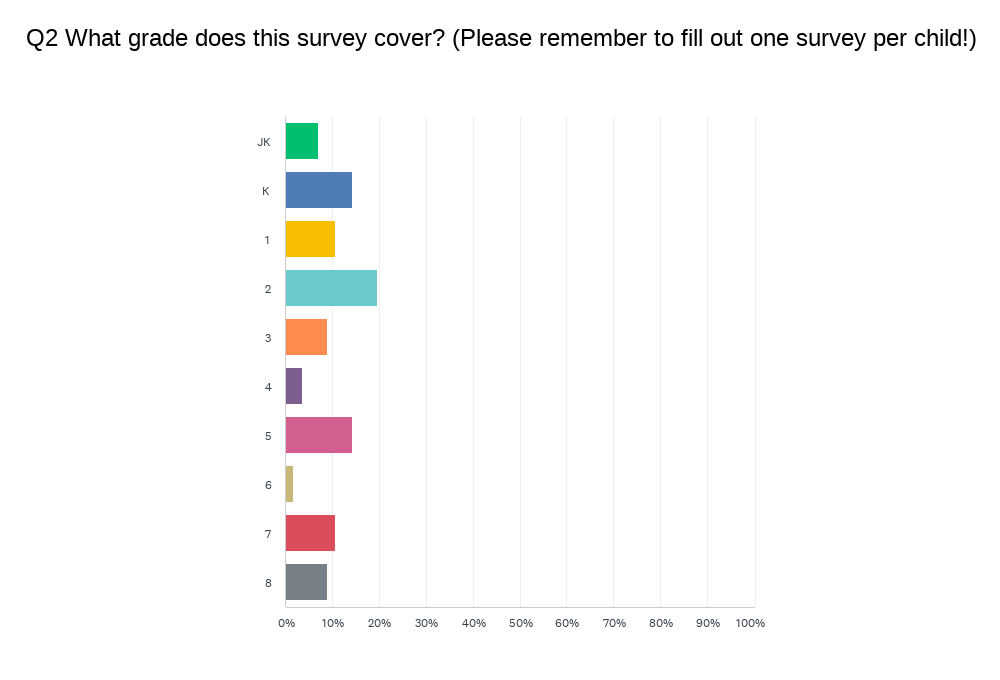 For a third straight year, we have more spread than normal. It is more typical to have a big cluster in the youngest grades with diminishing returns as you get older. Again this year, we have a healthy (if low) distribution across most of our grades.
For a third straight year, we have more spread than normal. It is more typical to have a big cluster in the youngest grades with diminishing returns as you get older. Again this year, we have a healthy (if low) distribution across most of our grades.